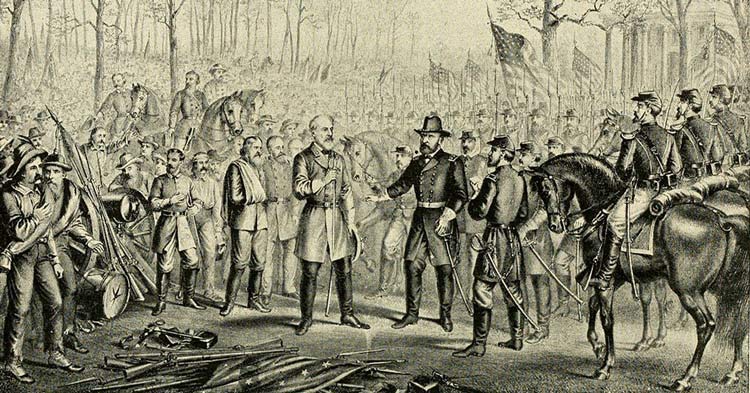Ulysses S. Grant Would Not Accept Robert E. Lee’s Sword in Surrender
We all know how romanticized stories through the ages can become, and the same can be said of war. The Civil War, in particular, has been heavily romanticized through the years, despite the fact that it claimed the lives of 2 percent of the United States’ population. And yet we love to hear tales of respect between the key characters of our history, perhaps in denial that our country was ever really that divided.
One of the most well-known stories is when Robert E. Lee surrendered to Ulysses S. Grant. The story goes that Grant refused to accept Lee’s sword of surrender. However, later Grant set the record straight in 1885 when he stated that the story was overly romanticized. He went on to say that even though he treated Lee with the utmost respect, he was glad the war was over and he believed wholeheartedly that the right side had won.
Investors From the 1929 Market Crash Jumped Out of Buildings
On October 24, 1929, the stock market quickly crashed, resulting in a loss of billions of dollars. Black Tuesday, the name they later coined for this awful day, led to countless banks failing and many people searching for jobs. That was the beginning of the Great Depression and Black Tuesday is known today as the most significant economic collapse in history.
At the time people believed that stockbrokers on Wall Street took their own life due to Black Tuesday and the events that took place thereafter. Part of this also had to do with investors who invested in the wrong companies. Quite suddenly all of their money and livelihood was gone.
The idea that stockbrokers jumped out of buildings on the day of the crash is so popular that it inspired a weird arcade game in 1982 where investors were falling from the sky. However, this “fact” is not entirely true because the stock traders who did end their lives didn’t do it by jumping from the top floor of a building. Suicide rates also didn’t increase, contrary to what you may have heard or read.







